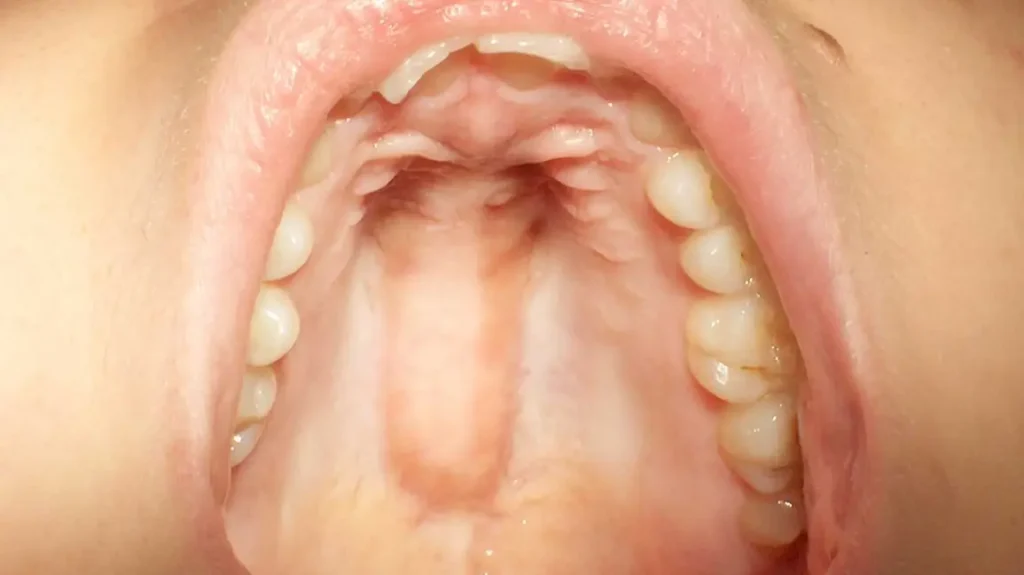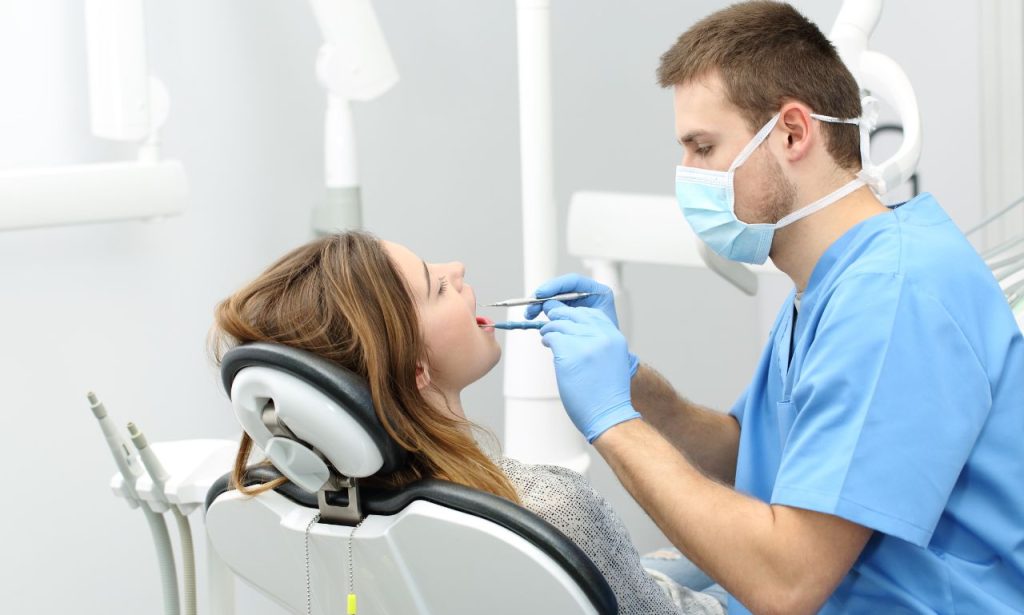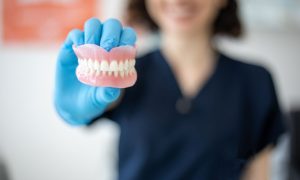Ever noticed a swollen roof of your mouth and wondered why is the roof of my mouth swelling? It can be uncomfortable, distracting, and even worrisome. Let’s dive into the common causes, warning signs, and remedies for that bothersome swelling up there.
Common Causes of Swelling in the Roof of the Mouth
Irritants and Allergens
The roof of your mouth can swell in response to common irritants and allergens. It’s amazing how something seemingly harmless can trigger that soft tissue into a puffy reaction.
- Hot Foods and Beverages: Drinking hot coffee or consuming spicy foods can easily lead to irritation, resulting in a swollen palate.
- Spicy or Acidic Foods: Spicy foods like chili peppers or acidic foods like citrus can be irritating, inflaming the delicate tissue. Think about those moments when a sudden bite burns — that inflammation might swell up the next day.
- Allergic Reaction: Allergens such as pollen or food allergens can cause a sudden inflammatory response. This inflammation is the body’s way of trying to protect itself, but it doesn’t always feel that protective when it’s your roof of mouth swelling up.
- Tobacco Products: Chronic irritation from smoking or chewing tobacco products leads to inflammation and swelling. Tobacco is a major irritant for the entire oral cavity.
Infections and Inflammatory Conditions

Swelling in the roof of your mouth can also be a symptom of an underlying infection or inflammation. If you’ve been asking, “why is the roof of my mouth swelling?”, infections could be the answer.
- Bacterial Infections: Common infections like strep throat can travel up to the roof of your mouth. Streptococcal bacteria are particularly known for causing these symptoms, and it’s crucial to look for other accompanying signs like fever.
- Fungal Infection: A fungal infection like oral thrush can cause the palate to become sore and swollen. These are often white patches, making the roof of your mouth tender.
- Viral Infections: The herpes simplex virus, coxsackievirus, or even the Epstein-Barr virus can cause blisters that lead to a swollen roof of the mouth. These viral outbreaks are painful and often accompanied by fever blisters or feverish symptoms.
- Inflammatory Conditions: Conditions like inflammatory bowel disease (IBD) can have oral manifestations, including swelling in the roof of the mouth. This can be linked to the systemic inflammation characteristic of IBD.
Dental Issues
Dental problems are another common cause of palatal swelling. If you’re wondering why is the roof of my mouth swelling, a dental issue may be to blame.
- Dental Abscess: An abscessed tooth may lead to swelling not only in the gums but also up into the roof of the mouth. The infection travels quickly through the soft tissue, leading to noticeable swelling and severe pain.
- Cysts: Dentigerous cysts or other dental cysts can grow into the palatal region, causing swelling. Cysts can lead to complications if left untreated, including pus and extensive swelling.
Trauma or Injury
Minor injuries are often underestimated, but they can also cause palatal swelling. Trauma is a common answer to the question, “why is the roof of my mouth swelling?”
- Burns from Hot Foods: One of the most common culprits is hot foods or beverages — think about biting into a piece of hot pizza and scalding the roof of your mouth.
- Sharp Foods or Objects: Hard or sharp foods, such as chips or crusty bread, can puncture the palate, leading to swelling. Even a sharp piece of food can damage the soft tissue.
- Dental Devices: Braces or other dental devices can sometimes cause trauma through repeated friction, irritating the tissue enough to cause a swollen roof of the mouth.
Dehydration and Nutritional Deficiencies
Sometimes, a swollen roof of your mouth is your body telling you it needs something.
- Dehydration: Not drinking enough water can lead to dry mouth, which in turn can cause irritation and swelling. The palate becomes dry and inflamed without adequate levels of hydration.
- Nutritional Deficiencies: Deficiencies, such as a lack of vitamin B or iron, can impact the health of the oral cavity. A lack of proper nutrients may cause inflammatory responses like swelling or a sore throat.
Specific Oral Conditions
There are a few specific conditions that can directly lead to the roof of your mouth swelling.
- Squamous Papilloma: This benign condition, linked to the human papilloma virus, can cause small bumps that may lead to palatal swelling.
- Aphthous Ulcers: These are often known as canker sores and can occur on the roof of the mouth, leading to inflammation.
- Minor Salivary Gland Tumor: Although rare, tumors can also occur in the minor salivary glands in the palate, causing swelling and tenderness.
Recognizing Symptoms and Warning Signs
Identifying Persistent Swelling
If the swelling doesn’t subside after a few days, it might be time to consider a deeper cause. Persistent swelling is often a sign of something beyond minor trauma.
- Bothersome Swellings: When swelling lingers beyond normal healing time, it’s a red flag that something else is at play.
- Extensive Swelling: Instances of palate swelling that spread across a wide area can be concerning. This could point to an infection or even a serious underlying condition.
Noticing Pain or Discomfort
Pain is often the body’s way of telling you something’s wrong.
- Severe Pain: If pain doesn’t improve with typical home remedies, this might indicate an infection or dental issue that requires medical treatment.
- Jaw Pain: Pain that extends to the jaw could be a sign of an abscessed tooth or another issue related to dental health.
Observing Changes in Color or Texture
Changes in how the roof of your mouth looks can also be a critical indicator.
- Color Changes: Redness, white patches, or a pale, irritated look can point to different problems — anything from bacterial infections to a fungal issue like thrush.
- Texture Changes: If the roof of your mouth feels bumpy or develops lesions, this could be a sign of aphthous ulcers or even squamous papilloma.
Recognizing Accompanying Symptoms
There are often other symptoms that go hand-in-hand with palatal swelling.
- Difficulty Breathing: Difficulty in breathing might suggest an allergic reaction that is causing swelling of the oral and nasal cavity.
- Bad Breath: Unusual or persistent bad breath might signal an ongoing infection or other dental-related issues.
- Sore Throat and Fever: Sore throat combined with fever often points toward an underlying viral or bacterial infection that’s impacting the palate.
When to Seek Medical Attention

Guidelines for Consulting a Healthcare Provider
Knowing when to seek medical advice is crucial. If you are dealing with the question, “why is the roof of my mouth swelling?” and it’s persisting, it’s time to see a doctor.
- Persistent Swelling: If your roof of mouth swelling persists longer than a week or two, a healthcare professional should evaluate it.
- Severe Discomfort: If the discomfort is affecting your eating, drinking, or overall quality of life, a medical consultation is necessary.
- Difficulty Swallowing or Breathing: If there’s difficulty swallowing or breathing, seek immediate medical attention.
Importance of Prompt Evaluation
Early evaluation can prevent complications. A healthcare provider can identify whether the problem is a minor irritation or a more serious issue like a salivary gland tumor or oral cancer.
Potential Diagnostic Tests
To identify the cause of the swelling, a healthcare provider may recommend:
- Oral Examination: A thorough oral exam can help spot any irregularities.
- Routine Dental X-rays: Dental X-rays can identify issues like cysts or abscesses that might be causing the problem.
- Biopsy: In rare cases, a biopsy may be needed if a lesion is present to rule out cancer or other serious conditions.
Treatment Options for Swelling in the Roof of the Mouth
Topical Remedies and Medications
Some remedies help soothe the inflammation and reduce the swelling.
- Topical Treatments: Gels or topical anesthetics can be used to alleviate discomfort. These treatments are often available over-the-counter.
- Antifungal Medication: If the swelling is due to a fungal infection like oral thrush, antifungal medication will be necessary to clear the condition.
- Antibacterial Medications: For bacterial infections, a healthcare provider may prescribe antibiotics to eliminate the infection and reduce swelling.
Addressing Underlying Conditions
Treating the root cause is key to long-term relief. Addressing the question, “why is the roof of my mouth swelling?” requires more than just symptom management.
- Allergen Management: Identifying and avoiding allergens is crucial for preventing repeated episodes of swelling.
- Dental Care: Treating dental abscesses, cysts, or gum erosion may require a dentist’s intervention to resolve the cause of the swelling.
- Nutritional Supplements: Addressing deficiencies with dietary changes or supplements can help prevent issues linked to nutrition.
Home Care and Management Strategies

Sometimes, simple care at home is enough to relieve the symptoms.
- Cold Water and Ice Chips: Cold water or sucking on ice chips can provide immediate relief by reducing inflammation.
- Avoid Irritating Foods: Stay away from spicy or acidic foods that might make the swelling worse.
- Good Oral Hygiene Routine: Regular brushing, flossing, and using appropriate oral hygiene products can keep the palate healthy and prevent infections.
- Cool Fluids and Bland Foods: Sticking to cool fluids and bland foods can help minimize irritation during the healing process.
Conclusion
Don’t ignore persistent swelling in your mouth. If you’re still wondering why is the roof of my mouth swelling, take care of your oral health and consult a healthcare provider if you notice any unusual changes. Your mouth is sending you a message—don’t let it go unheard!
ALSO READ: Are You Supposed to Brush the Roof of Your Mouth?
FAQs
Yes, dehydration can cause dry mouth, which in turn can irritate the palate, leading to swelling.
If the swelling lasts for more than a week or is accompanied by other concerning symptoms like fever or difficulty breathing, consult a healthcare provider.
Absolutely, allergens like pollen or certain foods can trigger swelling in the roof of your mouth.
Avoid spicy, acidic, or very hot foods as they can further irritate the already sensitive tissue.




